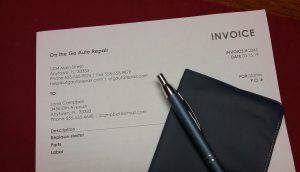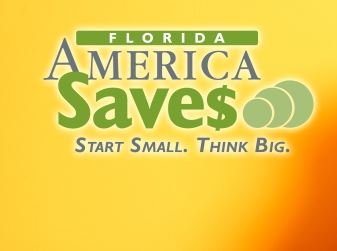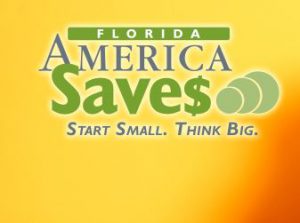
by Samantha Kennedy | Nov 10, 2020
It has often felt like time has dragged on in 2020, but despite all the challenges, time has continued to march on, and that means the holiday season is right around the corner. Thanksgiving is fast approaching; November 26th will be here before we know it. And while this year has been tough in many ways, we also have a lot for which to be thankful.
One of the ways we celebrate that gratitude is through a nice meal with friends and family. However, many of us have experienced financial difficulties over the last several months, which may put a damper on our traditional celebrations.
With that in mind, here are a few tips for saving money this Thanksgiving:

Keeping the sides simple and having guests contribute items to the meal are two ways to reduce the overall cost of a Thanksgiving meal. (Photo source: Tyler Jones, UF/IFAS)
Shop with a list. This is good advice for everyday shopping, too, but especially at the holidays, when there are just so many delicious seasonal goodies available and we might feel like splurging. Don’t get carried away, though! Stick to traditional favorites everyone enjoys and only get enough to feed the number of guests, not an army. And remember, if it’s not on the list, don’t buy it.
Shop early. Supermarkets often begin putting holiday food items on sale weeks before the main event. Planning ahead and purchasing ingredients early can save money in the long run. Also, think about purchasing canned and dry goods for next year’s festivities right after this Thanksgiving, as ingredient prices are reduced in order to sell them more quickly and make room for other items. Just remember to check the expiration/sell-by dates to make sure they do not expire before next year.
Choose one type of meat. Turkey is the traditional centerpiece to most American Thanksgiving meals, but it doesn’t have to be. Other popular meats include ham, lamb, roast, and prime rib. The key to saving money on the meat, however, is to choose just one. Meat is one of the most expensive items on a Thanksgiving menu, and, odds are, if there is an abundance of side dishes, there won’t be a need for as much meat.
Frozen over fresh. As for the turkey, go with a frozen store brand turkey. The savings could be significant over a name brand or fresh turkey. Just remember, frozen turkeys take time to thaw safely in the refrigerator. Plan for 24 hours of thawing time per five pounds of turkey. For example, a 15-pound turkey will take at least three days to thaw in the refrigerator. Remember to place the turkey in a pan to prevent juices from dripping onto other food in the refrigerator.
Make it a potluck. Ask guests to bring a dish to share with everyone else. This way, the expense is spread out over several people and everyone saves money. There are some really great free websites that allow people to sign up to bring certain items. Customizing the sign-up helps ensure that everything is accounted for and that there isn’t a pile of pumpkin pies but no side dishes.
For more information about holiday savings tips, contact Samantha Kennedy, Family and Consumer Sciences agent, at (850) 926-3931, or reach out to your local Extension office.
Additional Resources:
Five Steps to Seasonal Savings (UF/IFAS Extension)
Food Safety Tips for the Holiday Season (UF/IFAS Extension)
UF/IFAS is an Equal Opportunity Institution.

by Judy Corbus | Mar 22, 2019

Unexpected expenses? Be prepared with a “rainy day” fund. Photo credit: UF/IFAS Northwest District
It began as a normal six-month dental check-up – no pain, no problems. After the X-rays, cleaning, and exam, my dentist informed me the X-ray showed an abscess above a back molar. The next thing I knew, I was headed to the endodontist for a root canal then back to my dentist for a permanent filling – wow! Who saw that coming? That was a classic “Life happens” moment!
We all face those unexpected events – a flat tire, a faulty alternator, an appliance on the fritz, a medical emergency. The question is, do we have the funds available to cover it? An emergency, or “rainy day,” fund helps us to handle those surprise expenses more easily, reducing our need to borrow to pay for them.
How much should we have in our emergency fund? A minimum of $1000 is a good starting point – that typically will cover most emergencies. A fully funded emergency reserve is three to six months of expenses; some financial advisors recommend eight to 12 months of expenses. If you are the sole breadwinner in your household, funding it to six months or beyond gives you a greater cushion. What is significant about these numbers? If you were unable to work due to a job loss, layoff/furlough, illness, or a family emergency, you would have funds available to tide you over until you could get back on your feet. Having funds to keep you afloat for a few months removes a lot of pressure and may allow you to explore your options without feeling like you need to take the first job offer that comes along because you “need the money.”
How do you fund your emergency fund? Look at your finances and, if you aren’t already in the habit of doing so, set aside a portion of your paycheck for savings right off the top – pay yourself first! Even if it’s just a few dollars per paycheck, those dollars will add up. If you receive a pay raise, save the difference between the new amount and your pre-raise salary. Your income tax refund is another great way to jump start your emergency fund – use Form 8888 Allocation of Refund to direct deposit your refund into one or more accounts.
It is a fact of life that life happens – be prepared with an emergency fund!
For more information on saving for emergencies, please see UF/IFAS FCS 7014 Money and Marriage: Saving for Future Use.

by Judy Corbus | Feb 27, 2018

Photo Source: University of Florida
It’s tax time, and many of us will be seeing refund checks soon—time to celebrate!
Now, what are you going to do with all that extra cash?
Maybe you have some bills to take care of, and it’s certainly a good idea to get those off your plate. But after that, let’s say you have some money left over. What then?
Think about putting those extra dollars in a savings account. Or, if you don’t have a savings account, open one. Even if it’s just $100, that first deposit could be the start of a lifelong savings habit.
Which brings us to another question: Why is it important to save?
Let me answer that question with another question: If you had to cover a $1,000 unexpected expense today, could you do it?
These little emergencies come up all the time. Your car needs repairs. You get sick and miss work. You have to travel out of state unexpectedly. These challenges are just part of life, but you can be prepared to meet them.
That $100 you tuck away is not much now, but consider this: If you saved $100 each month for a year, you’d have $1,200 in your bank account. That’s a good financial cushion that can keep you afloat when the unexpected happens.
Need a little encouragement to stick to the savings habit? The Florida Saves Pledge (floridasaves.org) is a great tool for setting financial goals. With this pledge, you’re making a commitment to work toward some type of savings objective, such as an emergency fund, a down payment on a house, or even retirement.
As a Family and Consumer Sciences Agent in Washington and Holmes Counties, part of my job is to help our community members learn to take charge of their money. In fact, there are people like me all over the state helping their neighbors with everything from horticulture to nutrition and youth development. We’re a network of experts who make up the University of Florida’s Institute of Food and Agricultural Sciences Extension. And we’re here to help, today.
For more information, contact your local Extension Office.
by jbreslawski | Feb 24, 2017
 Nationally, America Saves Week is an annual opportunity to promote good personal savings behavior!
Nationally, America Saves Week is an annual opportunity to promote good personal savings behavior!
More locally, the University of Florida Institute of Food and Agricultural Sciences (UF/IFAS) is collaborating with America Saves in a campaign to help Floridians build wealth, not debt! The Florida Saves, (floridasaves.org) statewide initiative has been officially endorsed by Jeff Atwater chief financial officer for the state of Florida. Why? Because research shows that, too many households with an unexpected expense of just $400 could be thrown into a financial crisis! This means a clog in the sink or a broken freezer could easily send a family into debt.
During Florida Saves Week, February 27 to March 4, 2017 UF/IFAS is urging residents to pledge to set a goal and start saving! Like our Florida Saves Facebook page to keep up with the latest info.
Saving money for an emergency makes good sense. Families with money saved for an emergency are less likely to face financial stress, less likely to fall behind on their bills, and less likely to deal with subprime alternative money sources that have higher costs than conventional options.
Make a commitment to yourself and take the Florida Saves pledge to help you reach your savings and debt reduction goals. Additionally, Florida Saves will motivate you with periodic information, advice, tips and reminders sent by email or text message to help you reach your savings goal. Paying yourself first, saving your tax refund, and saving automatically are just a few ways that Florida Saves encourages you to build wealth and reduce debt.
Plus, this year Floridians who pledge to become a saver can enter to win $50 to be put toward reaching their financial goals by completing a short survey after setting a goal and signing the Florida Saves pledge.
Want to win more? Take a video or photo to share your savings story and follow the link to enter to win a national prize of $1,000 in theAmerica Saves http://www.americasavesweek.org/imsavingfor/ contest.
Take the pledge at floridasaves.org Set a goal and make a plan!

by Angela Hinkle | Sep 28, 2016
 I did it! Or should I say, I didn’t do it! Or more realistically, I almost didn’t do it! What? Spend money in the month of September. Some of you may remember my wallet really needed a break, so I set a goal to spend no money in the month of September unless absolutely necessary.
I did it! Or should I say, I didn’t do it! Or more realistically, I almost didn’t do it! What? Spend money in the month of September. Some of you may remember my wallet really needed a break, so I set a goal to spend no money in the month of September unless absolutely necessary.
Did this help? Yes, my wallet, checking account, and credit cards seem much more at peace. Was it easy? Except for a few bumps and hiccups, it wasn’t too bad. Like a good financial citizen, I paid all by bills and gave at church, I kept gas in my car, and had plenty of food (in my house).
However…
Snafu #1: The food thing was a little trickier when it came to work. I went to a conference and for five days, we only received one dinner, one lunch, and two breakfasts. The people from Idaho brought and gave out great potato chips (but I could not and should not try to live off of those). I brought lots of nuts, granola bars, and small containers of fruit in my suitcase but still had to fork out money for three dinners and one lunch with a little more substance. My traveling companion knew of the goal I had set and was nice enough to buy me dinner one night. (I think I must have looked really sad and hungry.)
Snafu #2: When did September become the season of giving? A wedding and a baby shower brought out the checkbook. Oh well, there are a new bride and mom-to-be who are happy.
At home, the only food I had to buy was bread (yes, I could have frozen some – yuck, or made some – no time) and milk (yes, I could have used the dry milk – yuck to drink) and since I miscalculated the amount of dog food in the house, I had to buy some of that, too. I will give a big shout out for canned and frozen foods. It was no big deal to not go out to eat nor go to the movies or to other forms of entertainment. (The good stuff doesn’t usually come out until October anyway.)
What about my all-important trips to the nail salon? Ha! I found a gift certificate (I love those things) that took care of both trips to the salon.
Though I didn’t go hard-core all the way, I did really well. I feel so much better and I’ve veered off my path toward debtor’s prison (yes, exaggeration).
I am blessed to have a comfortable life so this was not that difficult. One month without extra spending was a free gift I gave myself. See if giving yourself the gift of a no-spend month makes your life better. Then be sure to share your success stories.








